Floating License Basics
This page provides an introduction to Sonnet's floating licensing for those who are unfamiliar with floating licensing. Sonnet offers two categories of licenses: node-locked and floating licenses. The basic difference is that a node-locked license is typically for exclusive use, whereas a floating license is for shared use.
Node-locked License
A node-locked license is locked to a single host ID, either a single computer's MAC address or a USB hardware key. The first picture below illustrates a node-locked license that is locked to a MAC Address and the second picture illustrates a node-locked license that is locked to a hardware key.
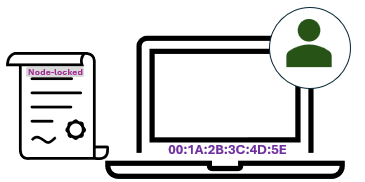
Host ID is a MAC address
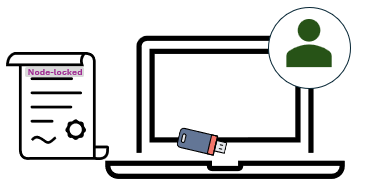
Host ID is hardware key number
In both cases, Sonnet will only run on the computer with the host ID (MAC address or hardware key number) corresponding to the host ID in the Sonnet license.
Floating License
You purchase a floating license when you want to share the use of Sonnet among a group of users. You install the license on a "license server" computer, a reliable computer that runs 24 hours a day and 7 days a week, and is accessible to your team. All users who have network access to that server can install and use Sonnet on their local computer. The local computer is sometimes called a "client" because it checks out a license from the server.
If you purchase one floating license, only one person can use the license at a time. That means if you are using Sonnet and another colleague wants access, they will need to wait until you are done using Sonnet. In the picture below, one Project Editor floating license is installed on the license server. User A is using the Project Editor floating license (indicated by a red circle). Users B, C, and D cannot use the Project Editor until user A is done.
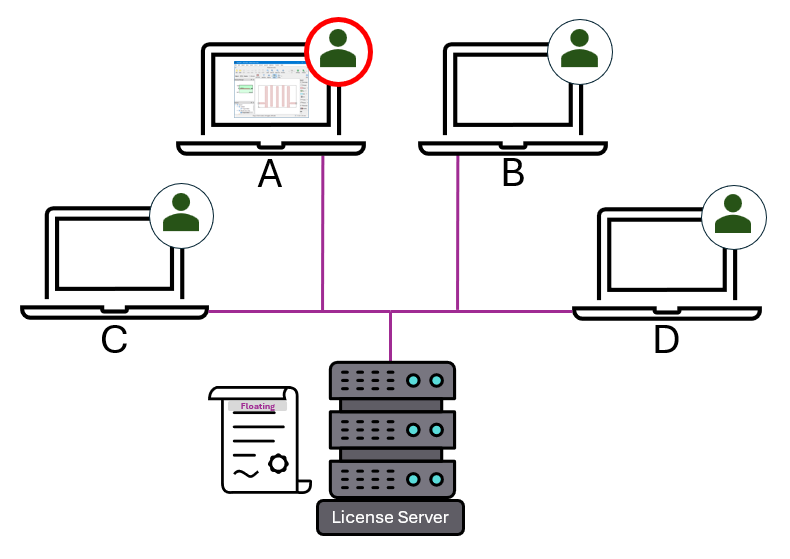
One floating license is being used by user A
Since the cost of one floating license is much less expensive than four node-locked licenses, floating licensing is often a more economical solution for engineering teams.
If you want Sonnet to be used by two users at the same time, you need to purchase two floating licenses. In this case, another colleague can also use Sonnet even if you are using it. This case is illustrated below:
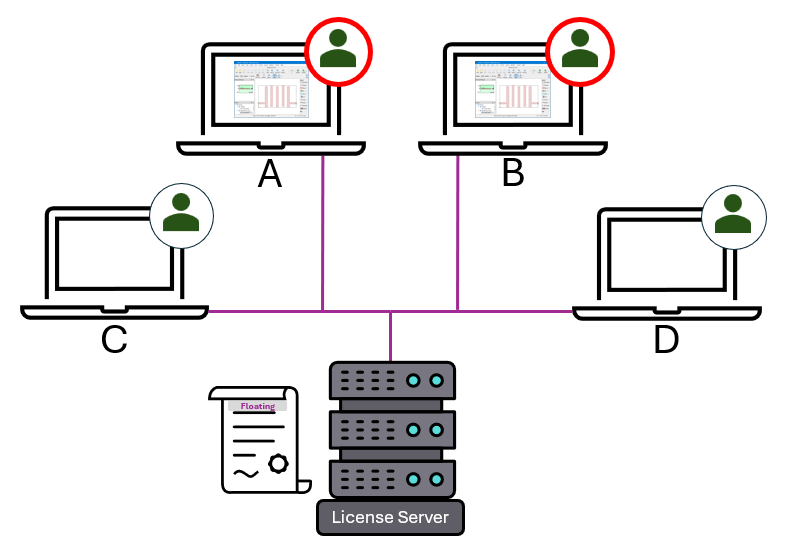
Two floating licenses are being used by user A and user B
If you want more users to be able to access Sonnet at the same time, you just need to purchase more floating licenses.
The Sonnet Licensing Model
Sonnet licenses its Project Editor separately from the EM solver. This means that when you check out a Project Editor license, the EM solver license is still available. For example, if your teammate is simulating a project (using an EM solver license), you can still use the Project Editor license.
Another implication of this is that you could purchase more Project Editor licenses than EM solver licenses if you expect that the Project Editor will need to be shared more often than the EM solver. Since Project Editor licenses are considerably less expensive than EM solver licenses, this is a cost-effective option for many organizations. Sonnet even offers a site license for the Project Editor at an affordable cost, allowing any number of users to use the Project Editor simultaneously.
Remote EM Computing
An additional benefit of purchasing a floating EM solver license is that it supports Remote EM computing. With Remote EM computing, users can edit their projects on their local computer and then run the EM analysis on a remote EM server on your network. A common reason for doing this is that there is a faster computer on your network on which you want to run your analyses, but the faster computer is in an inconvenient location or shared by multiple users. The picture below illustrates the concept. User A is using a Project Editor license, and user B is has submitted an analysis to an EM Server which is using an EM solver license.
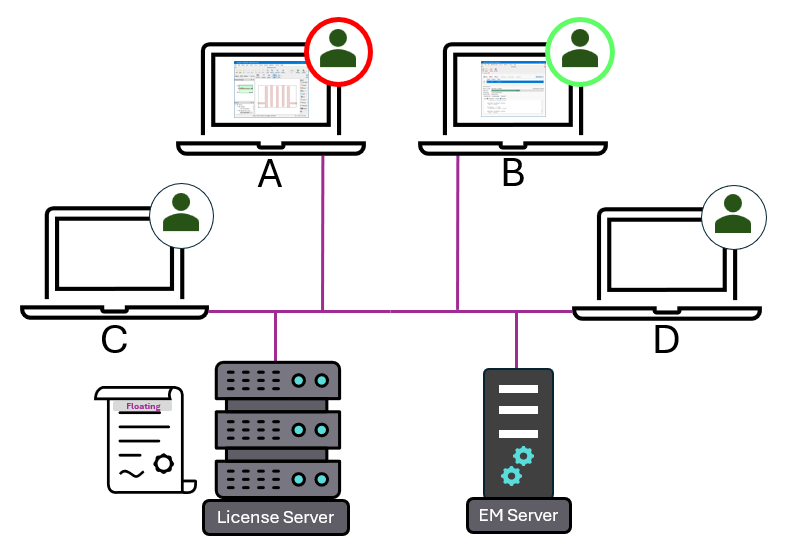
See Also